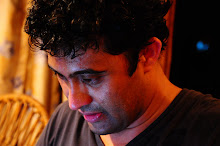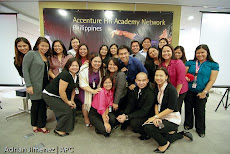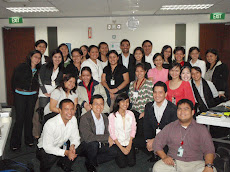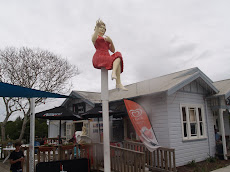Twenty flights, mostly long haul and some less so, weaving in and out of airports some thirty odd times over a nine week period. That pretty much summed up my life this summer. My work, enjoyable as it was, had kept me on my toes and also up in the air.
So when I trudged into the Chennai office of Madura (http://www.maduramicrofinance.com/) a couple of days after returning from yet another grueling trip to US, I should have been a tired man. I was there for a Board meeting and to work with new members of the leadership team on their expansion plans. But the two days I spent there turned out to so energizing that fatigue evaporated even before it could set in. Some weeks have gone by since my visit but I still find myself smiling as I reflect on the conversations we had and the experiments we decided to enact.
My association with Madura began over a year ago. I had been looking for opportunities to work with people engaged in bridging the gap between those with education and access and those without. Madura was embarking on significant growth plans and wanted to have a person on the Board with experience of scaling an organisation. We found each other thanks to a helpful friend. Over the next few months, I made several visits and got an opportunity to see the impact of the organisation up close. Madura was preparing for the next phase of evolution with diligence and focus. They scouted for senior management professionals to complement the highly dedicated staff that had brought the organisation through its various phases of evolution. I participated as I could – joining in the selection process and decision making, sometimes in person and at other times over skype or phone, from whichever part of the world I happened to be in. In a surprisingly short time, new members of the management team had been recruited and they were ready and raring to go!
So the July meeting was of significance. The Board had shown up in full strength. The customary quarterly performance update was given and plans for the future were laid out. There were new ideas aplenty, confidently presented by a young and driven crop of managers. Their voices mingled with those of industry stalwarts who had spent their lifetimes building and nurturing some of the leading organisations in India. There were emotional moments. Senior Board members who had seen the organisation from its inception and deeply cared about the vision of its late founder were heartened to see the new generation propelling it forward with energy and conviction. By the end of the day, there was energy, optimism and warmth all around.
The day after the board meeting was all about people…what would our strategy be to grow the organisation? How would we preserve its culture as we grew manifold? A smaller group had gathered to deliberate on these matters. Still in the afterglow of the previous day's events, I had some nagging thoughts at the back of my mind. I was really trying to understand what made this organisation what it was…what was its secret sauce? How could I contribute to its future unless I really understood its DNA? So I decided to seek answers from people in the room. There was the Chairperson, Tara (check out http://physicsofpoverty.blogspot.com/ for some remarkable insights), Sandeep - Board member and Founder of Elevar (http://www.elevarequity.com/), and David, the new Executive Director (http://www.davidappasamy.blogspot.com/).
What happened thereafter was magical...
The picture of Madura that emerged was unique and paradoxical at the same time!
The company had been in the business of microfinance for the past fifteen years, operating within the villages of Tamil Nadu in south India. It had a long history of serving the rural poor. Over the years, the organisation had gone through difficult times as it changed hands, lost its revered founder, and rallied around to eventually emerge stronger. So much so that in 2007, Forbes ranked it as the world's most cost effective provider of microfinance. On any financial metric, Madura was off the industry charts for a company of that scale in India. Lowest rate of lending (by a significant margin compared to its nearest rivals), very low operating costs, excellent rate of loan repayment, high customer retention...
We had all been to the field and met frontline employees as well as customers. There was unanimity in our observations...never before had we met a more committed set of people who were so totally immersed in the mission of the organisation. Their emotional connect to the purpose was unparalleled. They had extreme cost sensitivity – not wanting to ever burden the poor. Employees went beyond the call of duty in serving their customers, who in turn regarded the field staff as one of their own. Several members of management had been with the organisation for decades in its earlier avatar as a bank. I had once witnessed a training session in progress and I couldn't believe how openly they embraced the new practices being propagated. Trust levels were obviously very high - not just between employees and management, but also how the borrowers looked upon the company. One defining, and unique, characteristic of Madura was blurring of the distinction between employee and customer...in many ways, they were practically the same! Several employees were women who had started out as borrowers, and over a period of time gained the means and skills to contribute. They imbibed the mission of helping others progress from poverty and eventually joined the company. As I learnt later, even senior functionaries had taken salary cuts to come on board.
Yet, in some aspects the way the company operated defied conventional management wisdom. Madura was not awash with a bevy of management practices...manuals, well documented role definitions, performance appraisal processes and the like. Until recently, they did not have formal heads for some of their key functional areas. The leadership team had not been driving 'top down' messages through the organisation. The obvious controls were financial and statutory in nature, with extensive use of mobile phone technology. Even field staff - the sales force - were not given set targets to perform to! They would simply go into the villages, form Self Help Groups (SHG) of women, mentor them in various aspects of entrepreneurship and provide useful information to enable them.
What then explains the results? How could this organisation outperform on every conceivable commercial parameter without embracing basic management practices?
We eventually agreed that it would be hard for us to understand till we ourselves unlearned…discarding the familiar so we could embrace the subtleties of this wonderful ecosystem. One decision was clear - until we knew any better, we would not impose upon it our myopic views and conditioned responses...in fact, we would do quite the opposite. The customers would decide and the employees would serve.
As for the Board and management, let’s just get out of the way!
Sunday, July 25, 2010
Subscribe to:
Posts (Atom)




















